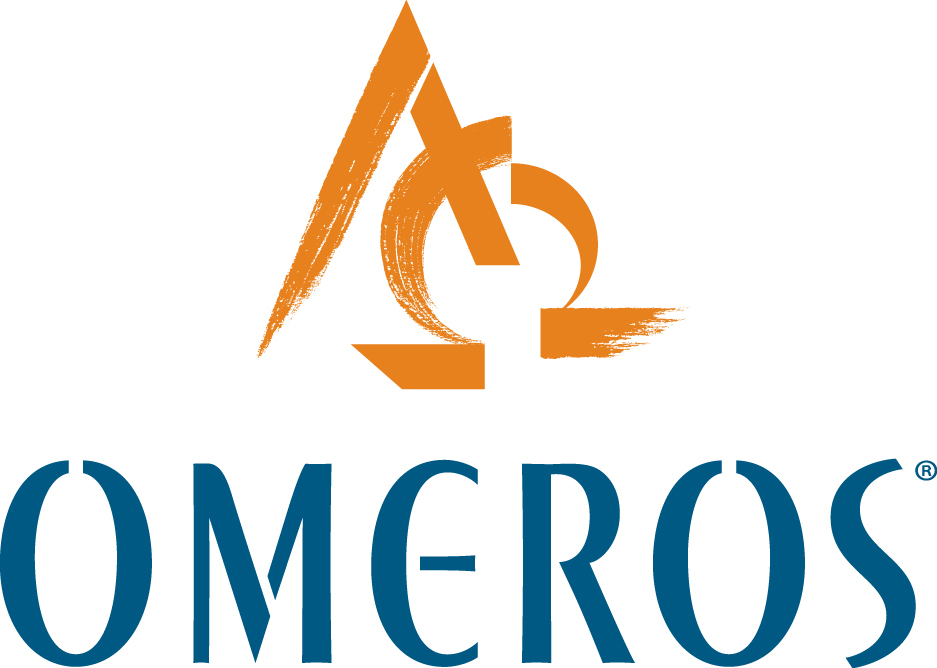-- Clinical Trial and Clinical Pharmacology Data Support Upcoming Enrollment of Omeros’ Zaltenibart Phase 3 Clinical Program in PNH --
SEATTLE--(BUSINESS WIRE)--Omeros Corporation (Nasdaq: OMER) today announced that two posters directed to zaltenibart (OMS906), Omeros’ investigational inhibitor of MASP-3, the key and most proximal activator of the alternative pathway of complement, were presented at the 66th Annual Meeting of the American Society of Hematology (ASH) yesterday in San Diego. The posters, both addressing zaltenibart in paroxysmal nocturnal hemoglobinuria (PNH) – a rare, life-threatening hematological disorder – detail positive Phase 2 clinical data and clinical pharmacology analyses supporting zaltenibart dose selection for the PNH Phase 3 program. Enrollment for the zaltenibart Phase 3 clinical trials in PNH is expected to open in early 2025.
Morag Griffin, MBChB, FRCPath, Consultant in Haematology of St. James University Teaching Hospital, Leeds, United Kingdom, presented data from the monotherapy stage of the completed Phase 2 “switch-over” study, which evaluated zaltenibart first as adjunctive therapy and then as monotherapy in patients with PNH who had an inadequate response to the C5 inhibitor ravulizumab. In PNH patients experiencing substantial extravascular hemolysis while receiving ravulizumab, zaltenibart monotherapy resulted in sustained clinically meaningful improvements in both hemoglobin and absolute reticulocyte count and prevented both intravascular and extravascular hemolysis. Zaltenibart monotherapy was well tolerated with no safety signals of concern.
The second poster details pharmacokinetic/pharmacodynamic (PK/PD) modeling of multiple zaltenibart doses, resulting in identification of a minimal threshold concentration of sufficient effectiveness. These PK/PD data support the selection of 8mg/kg as the optimal dose for intravenous administration every 8 weeks to achieve complete suppression (> 98 percent) of alternative pathway activation – the dosing regimen that will be used in the Phase 3 PNH clinical trials.
The full poster presentations are available on the Omeros website at https://investor.omeros.com/presentations. Both abstracts are available on the ASH website at www.hematology.org.
Monotherapy Treatment with Zaltenibart (OMS906), an Alternative Pathway Masp-3 Inhibitor, Improved Key Hematologic Parameters in Patients with PNH with a Suboptimal Response to Ravulizumab: Interim Results from a Phase 2 Proof-of-Concept Study
Abstract Number / Link: 4072
Population Pharmacokinetics/Pharmacodynamics and Clinical Pharmacology of Zaltenibart (OMS906) in Healthy Subjects and Patients with PNH
Abstract Number / Link: 4081
About Zaltenibart (OMS906)
Zaltenibart (OMS906) is an investigational human monoclonal antibody targeting mannan-binding lectin-associated serine protease-3 (MASP-3), the key and most proximal activator of the complement system’s alternative pathway. The complement system is a critical part of innate immunity and plays a central role in host homeostasis and defense against pathogens. Responsible for the conversion of pro-complement factor D to complement factor D, MASP-3 is believed to be the premier target in the alternative pathway – it has the lowest native circulating level and low relative clearance compared to the other alternative pathway proteins and, unlike C5 and C3 blockers, MASP-3 inhibition leaves intact the lytic arm of the classical pathway, important for fighting infection. Also, unlike other components of the alternative pathway, MASP-3 is believed not to be an acute phase reactant, which could provide a significant advantage to MASP-3 inhibitors, like zaltenibart, over other alternative pathway inhibitors. MASP-3 inhibitors are thought to have preventive or therapeutic effects across a broad range of diseases including paroxysmal nocturnal hemoglobinuria (PNH), hemolytic uremic syndrome (HUS), atypical HUS, traumatic brain injury, arthritis, geographic atrophy or “dry” macular degeneration, ischemia-reperfusion injury, transplant-related complications and other immune-related disorders.
About Omeros Corporation
Omeros is an innovative biopharmaceutical company committed to discovering, developing and commercializing first-in-class small-molecule and protein therapeutics for large-market and orphan indications targeting immunologic disorders, including complement-mediated diseases and cancers, as well as addictive and compulsive disorders. Omeros’ lead MASP-2 inhibitor narsoplimab targets the lectin pathway of complement and is the subject of a biologics license application pending before FDA for the treatment of hematopoietic stem cell transplant-associated thrombotic microangiopathy. Omeros’ long-acting MASP-2 inhibitor OMS1029 has successfully completed Phase 1 single- and multiple-ascending dose clinical studies. Zaltenibart, Omeros’ inhibitor of MASP-3, the key activator of the alternative pathway of complement, is advancing toward Phase 3 clinical trials for paroxysmal nocturnal hemoglobinuria and complement 3 glomerulopathy. Funded by the National Institute on Drug Abuse, Omeros’ lead phosphodiesterase 7 inhibitor OMS527 is in clinical development for the treatment of cocaine use disorder. Omeros also is advancing a broad portfolio of five novel cellular and molecular immuno-oncology programs. For more information about Omeros and its programs, visit www.omeros.com.
Contacts
Jennifer Cook Williams
Cook Williams Communications, Inc.
Investor and Media Relations
IR@omeros.com






